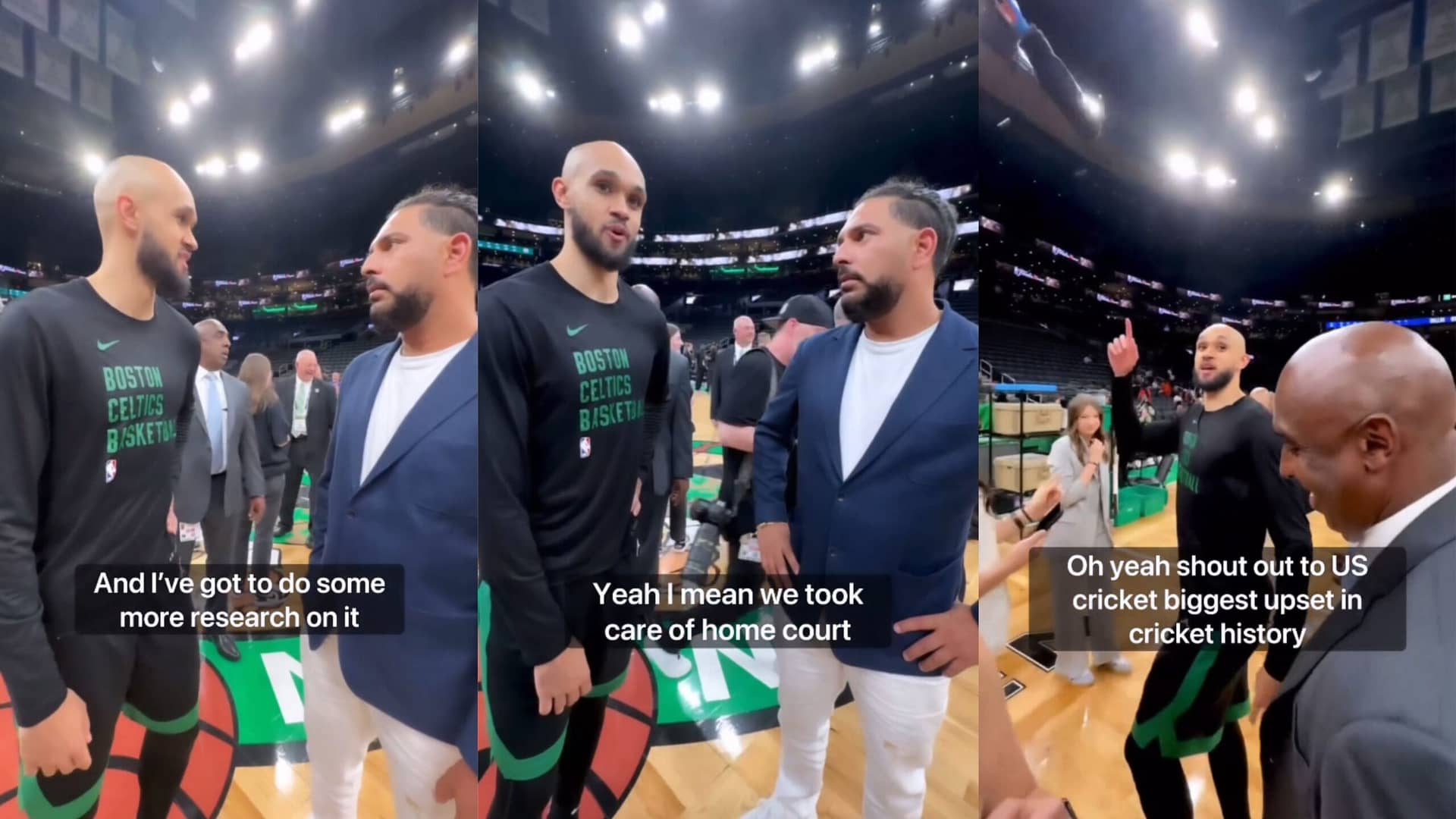The International Cricket Council (ICC), the National Basketball Association (NBA), and the Boston Celtics, represented by NBA player Derrick White and cricket legend Yuvraj Singh, have partnered in an unprecedented partnership between cricket and basketball to offer a distinct viewpoint to the ongoing ICC Men’s T20 World Cup 2024 .
This innovative alliance seeks to strengthen the bonds between two different sports and promote good sportsmanship and goodwill among fans everywhere.
The partnership between the Boston Celtics, the NBA, and the ICC is an incredible union of two radically disparate sports cultures.
This program aims to promote the global appeal of sports and highlight the shared characteristics of greatness, teamwork, and dedication that cut across boundaries by bringing together athletes from the sports of basketball and cricket.
The two individuals who best represented this unusual partnership were cricket legend Yuvraj Singh and gifted NBA player Derrick White, who are both renowned for their exploits on the field.
Their connection during the T20 World Cup was riveting because of their mutual respect for each other’s disciplines and shared passion for sports.
Fans saw an exciting new dimension at the ICC Men’s T20 World Cup 2024 because to the intelligent conversations and captivating encounters between two athletic legends, Derrick White and Yuvraj Singh.
Fans were able to see firsthand the friendships and respect that athletes from many sports have for one another through social media and in-person events.
The collaboration between cricket and basketball facilitated a cross-cultural exchange that resonated with fans around the globe.
As Derrick White and Yuvraj Singh shared anecdotes, discussed their respective sports, and exchanged tips, they exemplified the power of sports to transcend cultural differences and unite people from diverse backgrounds.
Instagram Comments:
- @steveogooo: “Scroll through NBA all you see is the color green and celtic players idk how maverick fans don’t see the script isn’t going to go their way celtics have more well known players 😂”
- @americangooner98: “It always amazes how these Indian cricket players always have like 100 million followers”
- @chewjore: “I’m pretty sure an engineering degree is required to understand cricket scoring.”
- @memelifehaha: “Dude looks like a Cricket player head ahh😂😂 much love❤️”
- @xyploidious: “Bro roasted Pakistan in the end😂😂”
In the sports world, the partnership between the ICC, NBA, and Boston Celtics—which includes Derrick White and Yuvraj Singh—represents a historic occasion.
This partnership honors the worldwide appeal of sports and encourages fans to embrace diversity, unity, and the spirit of competitiveness by bridging the gap between basketball and cricket.
Fans are excited to see more exchanges between athletes from various sports as the T20 World Cup progresses, hoping to build a tradition of camaraderie and sportsmanship that goes beyond the field of play.
*This article was written by Tushar @09sports.com
Source – Instagram
- Jake Rogers’ Homers Spoil Venable’s Debut as Rangers’ Acting Manager in Tight 2-1 Defeat
- Historic Upsets and Thrilling Comebacks: NCAA Baseball Super Regionals Heat Up
- Shubman Gill’s rumoured girlfriend Sara Tendulkar reaches New York for India vs Pakistan clash | T20 World Cup 2024
- Against All Odds: Jim Penders and the Inspiring Rise of UConn Baseball to the Super Regional
- Kansas City Chiefs’ B.J. Thompson Alert and Responsive After Seizure and Cardiac Arrest
